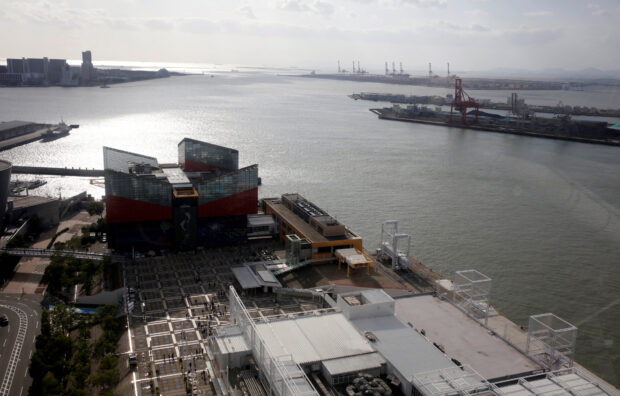Revised Japan Q4 GDP data to show economy likely avoided recession

Factories line the port of Osaka, western Japan October 23, 2017. Picture taken Oct 23, 2017. REUTERS/Thomas White/File photo
TOKYO – Revised data for Japan‘s fourth-quarter gross domestic product will likely show that the economy avoided a technical recession thanks to companies’ stronger-than-expected spending on plants and equipment, a Reuters poll showed on Friday.
October-December GDP is expected to be revised up to show an annualized expansion of 1.1 percent, according to the median forecast of 21 economists in the poll.
Preliminary figures released on Feb. 15 had pointed to an unexpected fall of 0.4 percent. The second consecutive quarter of contraction met the definition of a technical recession for Japan – now the world’s fourth-largest economy behind Germany.
READ: Japan slips into recession, Germany now world’s third-biggest economy
“Fears of entering a recession have disappeared,” said Atsushi Takeda, chief economist at Itochu Research Institute.
Article continues after this advertisementConfidence to end negative rates
Evidence of economic growth, if realized, could provide the Bank of Japan with more confidence to end negative interest rates as early as this month, paving the way for Japan‘s first rate hike since 2007. The central bank will meet for a two-day policy-setting meeting on March 18-19.
Article continues after this advertisementCapital expenditure probably rose 2.5 percent in the fourth quarter, much better than the initial reading of a 0.1 percent decline, according to the poll.
READ: Japan sees growing momentum towards March end to negative rates
However, private consumption, which makes up about 60 percent of Japan‘s economy, is expected to show a similarly weak reading in the revised data after a preliminary 0.2 percent drop, analysts said.
“It’s difficult to say that a virtuous cycle (between wage increase and inflation and consumer spending) has been achieved,” said Saisuke Sakai, senior economist at Mizuho Research and Technologies, referring to a prerequisite the BOJ has identified to unwind its ultra-loose policy.
“It’s going to be more like ‘low economic growth under inflation’,” Sakai said.